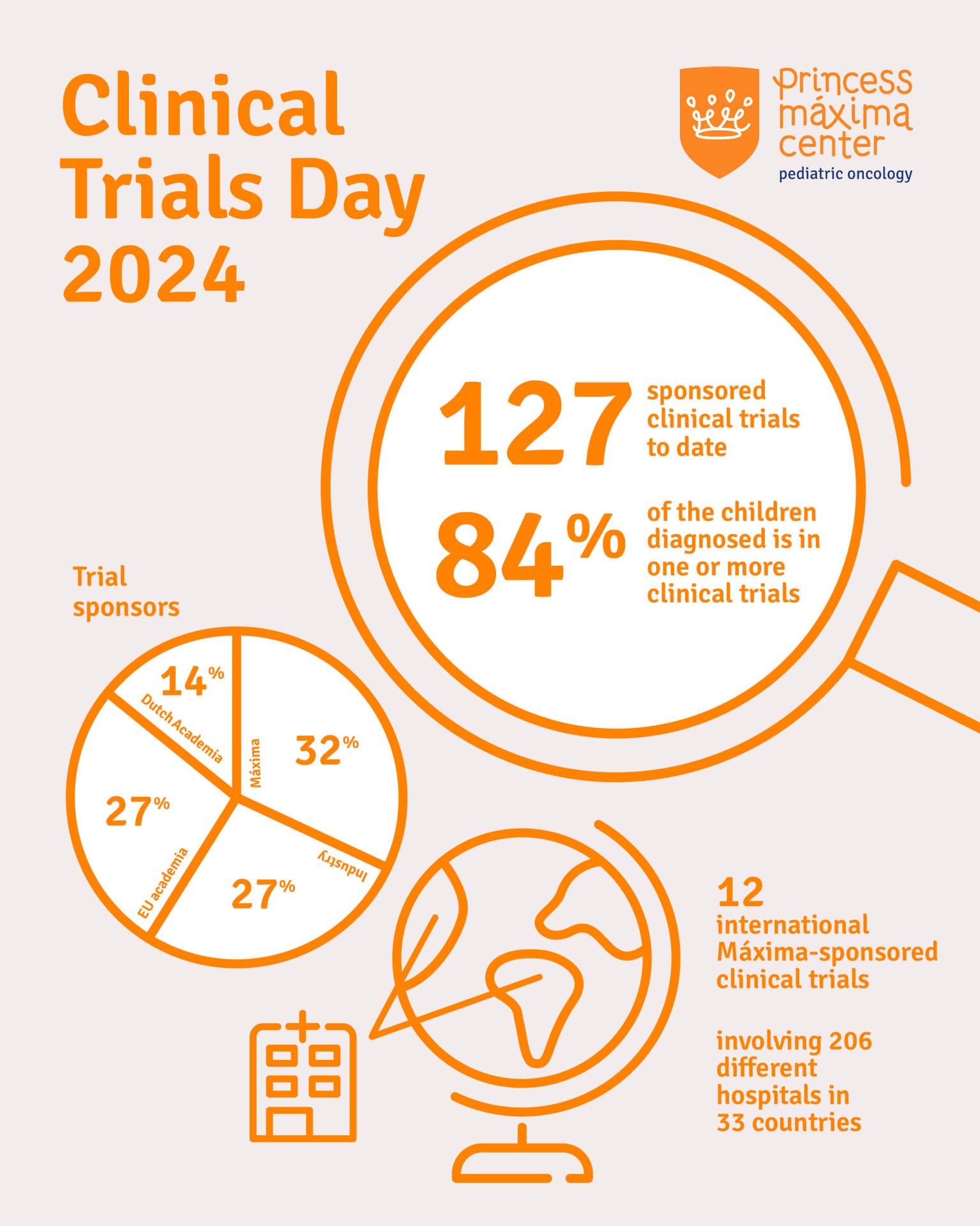Clinical trials are crucial in achieving the mission of the Máxima. A clinical trial investigates, among other things, whether a new treatment works better. Or gives fewer side effects resulting in a better quality of life during treatment and/or afterwards.
There are different types of studies, each with a different purpose. Before a study begins, it is designed. A statistician plays an important role here. Dr. Harm van Tinteren is statistician and, together with pediatric oncologist Prof. Dr. Michel Zwaan, head of the TDC: 'If the study involves a drug that has not been given to children before, we must first investigate in what dosage it can be administered. If this dosage is already known, we look at the effect on the tumor. If it there is, we investigate whether the tumor disappears or stays away longer. And whether children will feel better in the long term and not have unpleasant side effects.'
'Clinical research in children, compared to adults, is often more complicated. After all, most studies require the participation of many patients to come to a reliable result. Fortunately, pediatric cancer is a rare disease, but that's why most studies must be conducted with other hospitals around the world to ensure reliable results.'
Standardization
At the Máxima, 84% of children are being treated in studies. While participating in a study, a lot of information is recorded from each child. It is important that everyone registers the data in the same way. In this way, data from different studies can be compared. In addition, a standard working method works faster and fewer mistakes are made. Van Tinteren: 'This is important for the study, but also for the creation of national and international databases. For example, we have now included uniform data on 10,000 children in the international Wilms tumors database in which I have been involved for thirty years together with Prof. Dr. Marry van den Heuvel. This is a wealth of information from which we can learn a great deal. We therefore encourage this very much in other tumor types as well.'
International collaboration
A clinical trial lasts several years. Once the study protocol is approved, collaborations with other hospitals, often from around the world, are contracted and set up. Next, enough children must participate in the study before data analyses begin. Only then can the results be submitted to the authorities responsible for evaluating the study results, the EMA in Europe and the FDA in the United States.
'Together with the authorities, we are exploring opportunities to speed up this process. For example, we consult in the design phase whether the study is set up in such a way that, with positive results, a drug can go through the approval process successfully.'
The TDC also discusses internationally which studies are most important to start. 'Childhood cancer is fortunately rare, but it also means we can conduct far fewer studies compared to adult oncology. Therefore, together with the pharmaceutical industry, the EMA and FDA and other major pediatric cancer institutes, we determine that the studies with the highest possible impact can start first. Thus, together with others, we design the clinical trial field so that we achieve increases in survival rates and optimal quality of life after childhood cancer as soon as possible.'
The Trial and Data Center (TDC) enables children with cancer and survivors from home and abroad at the Princess Máxima Center to access tumor type-specific clinical trials. The TDC often fulfills the role of 'sponsor' (the responsible implementer), project leader of the study or as local organizer of studies hosted elsewhere. The promising drugs, treatments, diagnostics and data analyses within these studies will eventually lead to a better cure rate with better quality of life for children with cancer and survivors.
Photo © Marco Hofsté

